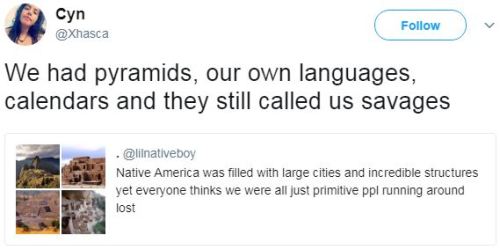Working On An Essay Or A Paper? Looking For Feedback, Help Or Editing Support But Have No Idea Where

Working on an essay or a paper? Looking for feedback, help or editing support but have no idea where to turn for unbiased, constructive criticism and professional advice? Here are some great resources to help get you going!
General
Harvard’s Strategies for Essay Writing
Queen’s University Online Thesis Manager
How To Write A Great Essay About Anything
How to Write Dazzlingly Brilliant Essays: Sharp Advice for Ambitious Students
University of Cambridge - How to Write a Paper
Purdue OWL: Writing a Research Paper
Microsoft Research - How to write a great research paper
Georgetown University - How to Write a Research Paper
University of South California - Organizing Your Social Sciences Research Paper: Guide
Abstract Writing
Berkeley - HOW TO WRITE AN ABSTRACT: Tips and Samples
Purdue OWL - Writing Report Abstracts
University of Toronto - The Abstract
How to write a good abstract for a scientific paper or conference presentation
Introductions and Conclusions
Columbia University - Writing a Good Introduction
University of North Carolina at Chapel Hill - Introductions
Birmingham City University - Writing Introductions
University of Toronto - Introductions and Conclusions
Purdue OWL - Writing a Developed and Detailed Conclusion
Harvard - Ending the Essay: Conclusions
Editing
Paper Rater
Ginger’s Essay Checker
Hemingway Editor
ProWritingAid
editMinion
After the Deadline
Slick Write
Grammarly
GrammarBase
Citation
Citation Machine
BibMe
EasyBib
RefMe: APA
RefMe: MLA
Cite This For Me
University of South California - Citation Guide
More Posts from Moola-of-hula and Others
have you ever watched your peers win the scholarships you've also applied to (and get rejected in) and feel just... really worthless? especially if you put in a lot of effort. Sometimes it's discouraging to think there's always someone out there that's much smarter than you. You don't have to reply, I just felt like venting haha.
Good evening, anonymous! Thanks for the ask!
I’ve been in similar situations many times, and it’s Not A Great Feeling. Although you asked about scholarship applications, I hope you don’t mind if I talk about application rejections more generally.
First off, some of my more recent rejection experiences include…
During my first wave of graduate school applications, I was rejected unanimously. It was extremely discouraging. (Contrast this with my second wave of graduate school applications a year later, wherein I was unanimously accepted and received several amazing financial offers.)
Because my subfield is financially-limited, there’s a lot of people applying for a very finite pool of money. Of course, my research group needs funding if it’s going to keep doing science, meaning rejection is an expected part of the process.
I’ve been rejected many times over by certain research-relevant summer schools that my colleagues have attended.
And so, with these experiences in mind, I’d like to provide some…
~Advice For When Your Application Gets Rejected~
Rejection in general can be extremely painful, disappointing, and discouraging. Then add the pressure of that rejection impacting your future? Cue heartbreak.
Here are several facts that help me maintain my spirits through repeated rejections. For instance, when it comes to the persons who evaluate applications, I keep in mind that…
They survey a TON of people. As a result, they end up with a larger number of qualified applicants than they have available spots. Being rejected doesn’t mean you weren’t qualified. I know plenty of hyper-qualified individuals who get rejected simply because of the luck of the draw.
They observe only a FRACTION of you. Applications are necessarily finite, so reviewers don’t get to evaluate the whole of you. Rejection of your application is not a rejection of you. You are so so SO much more than an application.
Furthermore,
An application rejected by certain reviewers might be accepted by others, and vice-versa. Consequently, if you get a rejection and someone else gets an acceptance that does NOT mean they’re better than you. An application can’t enable judgments of that complexity.
You are growing and changing every day: the pieces of you that go into an application can be improved upon or reworked for future applications. Rejection can inform you what areas you might try to focus on in the future.
Finally, my most IMPORTANT piece of advice is to keep in mind that…
~even the strongest applicant will receive rejections~
There’s an element of luck whenever you apply for anything. That’s the nature of these systems and it’s not your fault.
Remember:
Success isn’t a matter of always succeeding, but persevering until you do.
Best wishes, my anonymous friend.
I'm learning combinatorics now. Do you know any cool places they are used ? Sorry for bad english
Combinatorics is quite frankly an ocean with a wide variety of applications. But since you ask, let’s take a look at the example of a ‘Two state Paramagnet’.
What is a paramagnet?

A paramagnet is a material in which the particles like compass needles align parallel to any applied magnetic field. But it is a temporary effect and the magnetization is lost when the field is removed
Paramagnetism in Liquid Oxygen
One of the popular examples of paramagnetism is liquid oxygen.
When oxygen is liquefied and poured over a magnet, the magnetic effect of the electrons become substantially noticeable.
Molecules will align to the magnetic from the magnet creating an induced magnetic field of its own.

As the liquid oxygen boils off you can you can see for a moment a ‘mist’ that it gives off that is still attracted to the magnets. - Paramagnetism
But how many particles are aligned with the field?


So, what can you do with that ?
One can find the net magnetization produced by the material based on the total number of dipoles facing up or down.

And essentially the total energy of the system (neglecting any interactions between dipoles).
We have come a long way from a simple combinatorics formula, now haven’t we?
Great question! Thanks for asking :)
a lovely octopus, graceful, and strong.
A Beginner’s Guide for Feminist Fantasy
First off, we have Gail Carson Levine. She writes children lit, her most famous is Ella Enchanted aka the best retelling of Cinderella ever. This is an objective fact, not an opinion*. Her books are witty and her main characters don’t fall into the trope of “strong female character” and are all unique. They have relationships with other women. The romances are well developed, but still allow room for character development, setting, and plot.
Tamora Pierce has created two different worlds: Circle of Magic and Tortall, both incredibly flushed out worlds and have multiple series set in both. She has mainly female protagonists, some are WOC and others are queer, and they all have amazing story arcs. In the Tortall series, each woman gets her own series and develops so much.
Malinda Lo writes high fantasy books (and some scifi) and it’s very gay. They are very clear cut stories, with beautiful writing and plays on well known tropes in the fantasy genre. Her books feature WOC as well and she is still writing new books, although some of her newer ones are sci fi and realistic fiction.
Robin McKinley writes beautifully written books, almost all with female leads. They center around female relationships and most are retellings of fairy tales. Most are high fantasy, but a few are urban fantasy. They are pretty open ended, and finish with a lot of unanswered questions, which I find refreshing.
Kirsten Cashore only has three books out, but they are perfect for entering into the fantasy world. Her series can all be read as standalones, but best read in order of publication. Her books feature WOC and queer women, with healthy romantic relationships and politics and friendships.
*jk, you can have your own personal fave
Keep reading
More like 16.6 percent of your life was spent literally living out your dreams.

Humans spend 33.3% of their lives asleep. They spend 50% of that dreaming. That means that 16.6% percent of your life experiences never happened.






I learned in a Latin Studies class (with a chill white dude professor) that when the Europeans first saw Aztec cities they were stunned by the grid. The Aztecs had city planning and that there was no rational lay out to European cities at the time. No organization.
Do you think you could possibly help me understand the graphical relationships between a position vs time, velocity vs time, and acceleration vs time graph? My homework is one of the graphs is given and I have to sketch the other two and I'm so confused!
Certainly. The main things to realize are that
1. velocity is the slope of position and acceleration the slope of velocity2. if acceleration is constant, velocity will be a straight line and if acceleration is zero position will be a straight line.
Mostly you’ll be dealing with constant acceleration. Which means velocity will be changing, which means position will not be flat. This is what it looks like when a car gains speed, for instance:

If you threw a ball in the air, the parabola would be upside down, and the velocity graph point down, which means IT’S slope would be negative. So where would the acceleration line be then?

sweet citrus

To help move away from summary and toward ANALYSIS, it’s important to incorporate strong verbs into your writing when discussing the writer’s rhetorical choices. Below is a list of verbs that are considered weak (imply summary) and a list of verbs that are considered strong (imply analysis). Strive to use the stronger verbs in your essays to help push yourself away from summary and toward analysis: ex “The writer flatters…” NOT “The writer says…”
Weak Verbs (Summary):
says
explains
relates
states
goes on to say
shows
tells
this quote shows
Strong Verbs (Analysis):
Argues, admonishes, analyzes, compares, contrasts, defines, demonizes, denigrates, describes, dismisses, enumerate, expounds, emphasizes, establishes, flatters, implies, lionizes, lists, minimizes, narrates, praises, processes, qualifies, questions, ridicules, suggests, supports, trivializes, vilifies, warns
Powerful and Meaningful Verbs to Use in an Analysis (Alternatives to Show):
Acknowledge, Address, Analyze, Apply, Argue, Assert, Augment
Broaden
Calculate, Capitalize, Characterize, Claim, Clarify,Compare, Complicate, Confine, Connect, Consider, Construct, Contradict, Correct, Create, Convince, Critique
Declare, Deduce, Defend, Demonstrate, Deny, Describe, Determine, Differentiate, Disagree, Discard, Discover, Discuss, Dismiss, Distinguish, Duplicate
Elaborate, Emphasize, Employ, Enable, Engage, Enhance, Establish, Evaluate, Exacerbate, Examine, Exclude, Exhibit, Expand, Explain, Exploit, Express, Extend
Facilitate, Feature, Forecast, Formulate, Fracture
Generalize, Group, Guide
Hamper, Hypothesize
Identify, Illuminate, Illustrate, Impair, Implement, Implicate, Imply, Improve, Include, Incorporate, Indicate, Induce, Initiate, Inquire, Instigate, Integrate, Interpret, Intervene, Invert, Isolate
Justify
Locate, Loosen
Maintain, Manifest, Manipulate, Measure, Merge, Minimize, Modify, Monitor
Necessitate, Negate, Nullify
Obscure, Observe, Obtain, Offer, Omit, Optimize, Organize, Outline, Overstate
Persist, Point out, Possess, Predict, Present, Probe, Produce, Promote, Propose, Prove, Provide
Qualify, Quantify, Question
Realize, Recommend, Reconstruct, Redefine, Reduce, Refer, Reference, Refine, Reflect, Refute, Regard, Reject, Relate, Rely, Remove, Repair, Report, Represent, Resolve, Retrieve, Reveal, Revise
Separate, Shape, Signify, Simulate, Solve, Specify, Structure, Suggest, Summarize, Support, Suspend, Sustain
Tailor, Terminate, Testify, Theorize, Translate
Undermine, Understand, Unify, Utilize
Validate, Vary, View, Vindicate
Yield
-
 academiaandarson reblogged this · 5 months ago
academiaandarson reblogged this · 5 months ago -
 annita89toyqw9ih liked this · 6 months ago
annita89toyqw9ih liked this · 6 months ago -
 nectarproblems liked this · 8 months ago
nectarproblems liked this · 8 months ago -
 eepymoonprincess reblogged this · 8 months ago
eepymoonprincess reblogged this · 8 months ago -
 eepymoonprincess liked this · 8 months ago
eepymoonprincess liked this · 8 months ago -
 anahifernandezrios liked this · 9 months ago
anahifernandezrios liked this · 9 months ago -
 babyval777 liked this · 10 months ago
babyval777 liked this · 10 months ago -
 elcrivainstudies liked this · 10 months ago
elcrivainstudies liked this · 10 months ago -
 atomic-adventures liked this · 11 months ago
atomic-adventures liked this · 11 months ago -
 haylee-baylee2003 liked this · 1 year ago
haylee-baylee2003 liked this · 1 year ago -
 hell-is-a-teenage-girl-13 liked this · 1 year ago
hell-is-a-teenage-girl-13 liked this · 1 year ago -
 angelamcd123 liked this · 1 year ago
angelamcd123 liked this · 1 year ago -
 uhtcearre liked this · 1 year ago
uhtcearre liked this · 1 year ago -
 pesetosaga liked this · 1 year ago
pesetosaga liked this · 1 year ago -
 nogentgrecermen liked this · 1 year ago
nogentgrecermen liked this · 1 year ago -
 immortalephialtes reblogged this · 1 year ago
immortalephialtes reblogged this · 1 year ago -
 lefthoundtreekid liked this · 1 year ago
lefthoundtreekid liked this · 1 year ago -
 sleepy-specter liked this · 1 year ago
sleepy-specter liked this · 1 year ago -
 throw-jeebus reblogged this · 1 year ago
throw-jeebus reblogged this · 1 year ago -
 aurafemme liked this · 1 year ago
aurafemme liked this · 1 year ago -
 organised-kitty liked this · 1 year ago
organised-kitty liked this · 1 year ago
